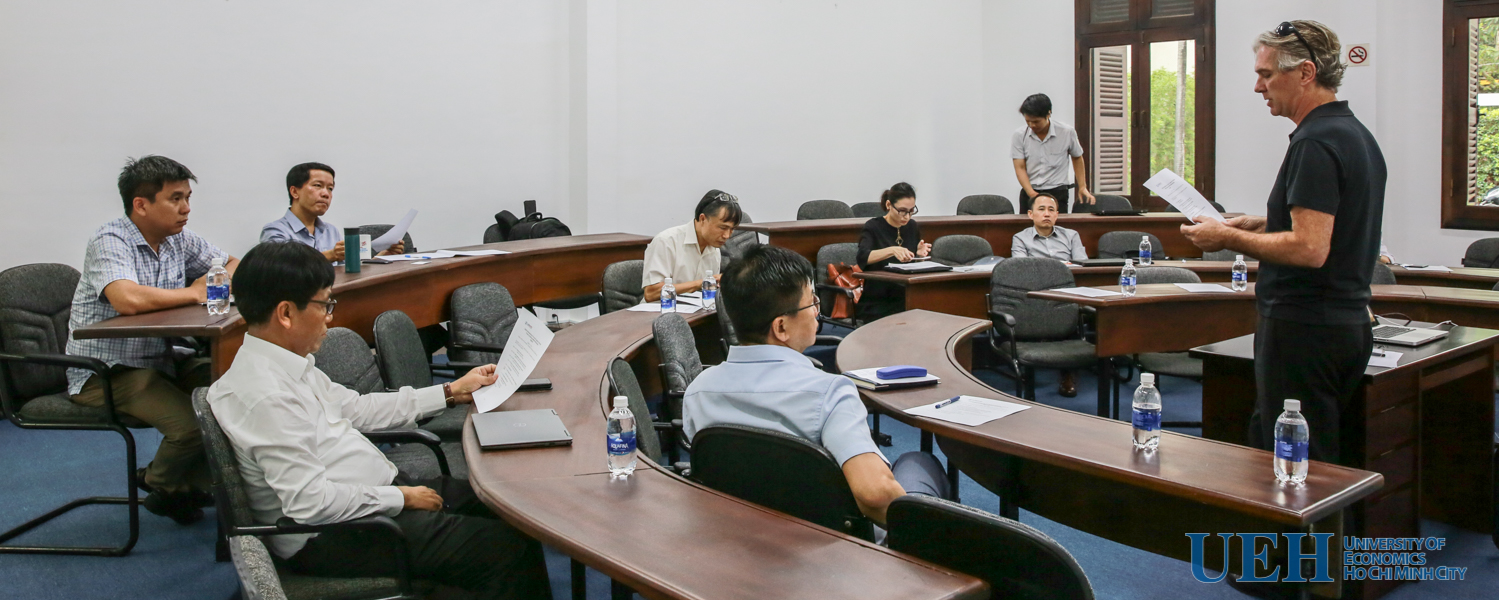
UEH organizes the seminar on "Developing monitoring and evaluation system" under USAID's Provincial Capacity Building Project
Within the framework of the cooperation project "Capacity building at the provincial level" between the United States Agency for International Development (USAID) and University of Economics Ho Chi Minh City (UEH), the School of Government from UEH held a seminar " Developing monitoring and evaluation system" on the morning of October 7, 2019.
Overview of the seminar
The seminar had the participation of Prof. Dr. Nguyen Trong Hoai - Vice President, Dr. Ly Thi Minh Chau - Head of Department of Quality Assurance - Curriculum Development, Dr. Dinh Cong Khai - Dean of School of Government with lecturers from the School, and expert Zoltan Milic from Chemonics International, USA.
Expert Zoltan Milic presented at the seminar
Zoltan Milic has 17 years of experience in monitoring, evaluation, data analysis, system modeling, and internal auditing. He used to be the Vice President of USAID on Support for Monitoring and Evaluation in Bosnia and consulted for projects funded by DFiD, European Commission, GIZ, Sida, Cida, World Bank / IFC, UNDP, JICA, and Czech Development Agency. He is currently the Senior Manager in the Monitoring, Evaluation and Learning Division of Chemonics International, USA.
The objective of the seminar is to help the School of Government to design an appropriate Monitoring, Evaluation and Learning System (MEL); Thereby, it is possible to estimate the effectiveness of capacity building activities for provincial staff.
The seminar included discussions and answers for project members better to understand the current MEL system and the necessary tools to improve and sustainably develop the MEL system in the future. For the public sector, improving feedback performance and learning mechanisms will help make planning more effective, contributing to the development of capacity building programs towards the service of the people. In the long run, these improvements will enable the delivery of higher-quality public services to the public.
Source: School of Government, Department of Communications and Public Relations.

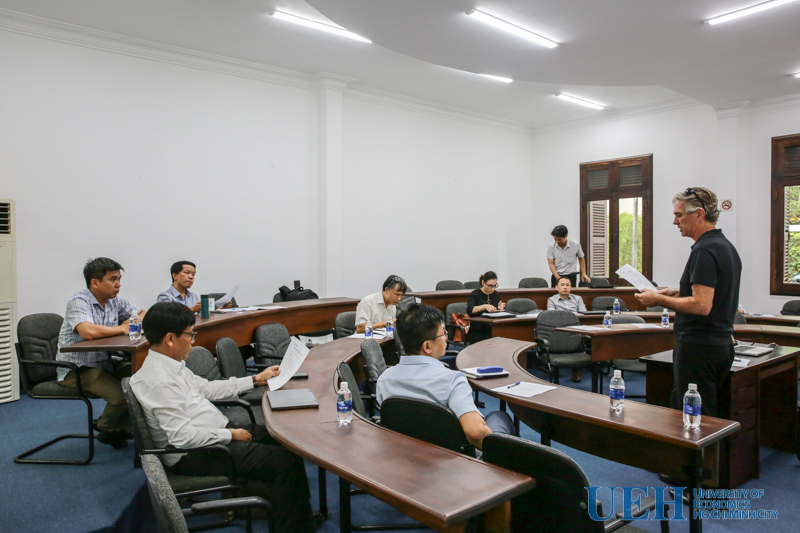
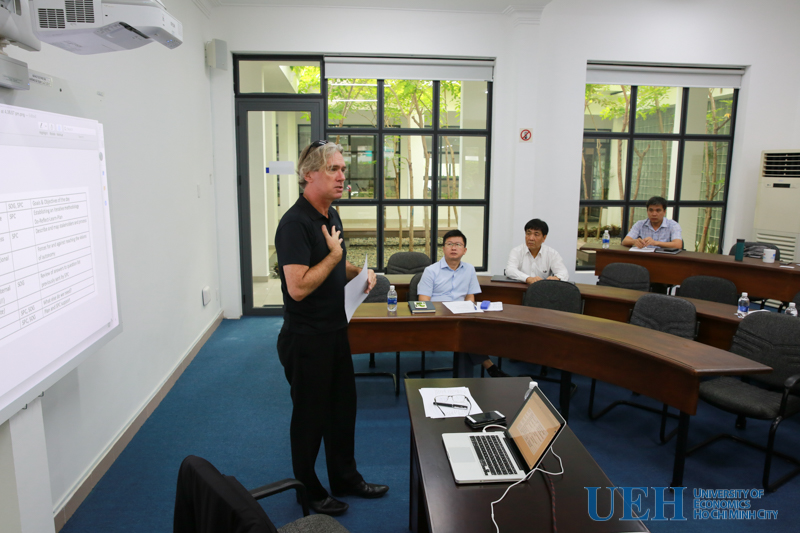
![[Podcast] Does the Financial Flexibility Prevent Stock Price Crash Risk during COVID-19 Crisis? Evidence from the Vietnamese Stock Market](https://en.ueh.edu.vn/images/upload/thumbnail/ueh-thumbnail-114718-071624.png)
![[Podcast] An Evaluation Of Two Business English Course Books, Business Partner B1+ Business Partner B2: Students’ And Teachers’ Perspectives](https://en.ueh.edu.vn/images/upload/thumbnail/ueh-thumbnail-113649-071624.png)
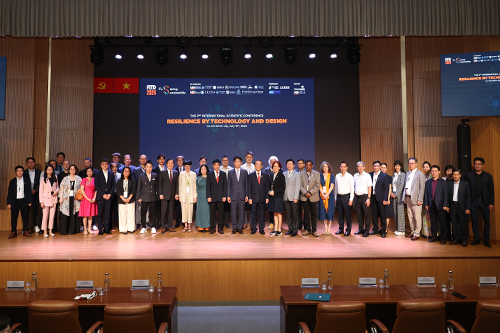
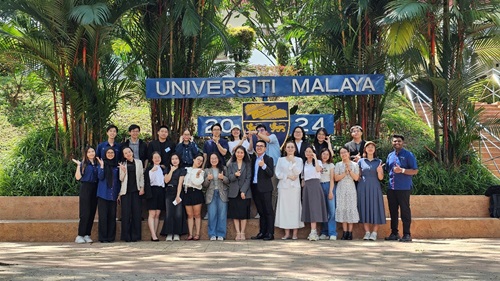
![[Podcast] Latest approaches for sustainable universities](https://en.ueh.edu.vn/images/upload/thumbnail/ueh-thumbnail-042022-071224.png)